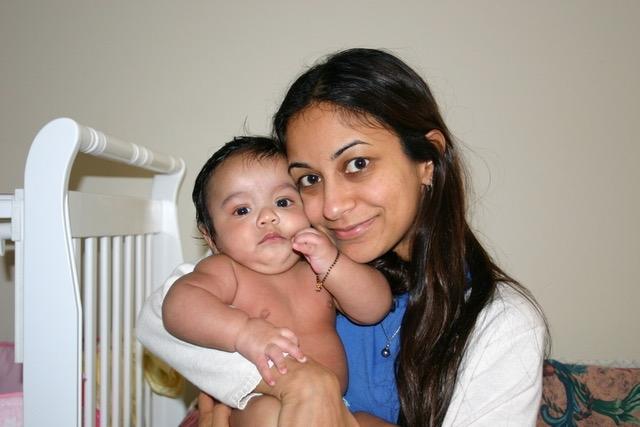The young mother was visibly exhausted.
She had been up for two nights as her six-month-old ran a fever and cried nonstop. She had thought about going to the ER but worried about the long wait, especially without childcare for her two-year-old as her husband was out of town. Now she was in the pediatrics office with an air of despair. “Please help me. I don’t know what’s wrong with my child”.
Parenting Can Be Stressful
Being a parent is a journey, even in the best of times. Whether it’s a sick infant, a clumsy toddler with a broken arm, a 9-year old starting the soccer season with a concussion, or a teen struggling with anxiety at school, the potential challenges can be endless. Unfortunately, the weight of parenting and supporting kids through this myriad of issues often falls disproportionately on moms. Almost 25% of women leave their jobs in the first year after having kids. After five years, only about 30 percent of these moms have returned to work. Over three-quarters of moms report they are the ones responsible for managing their children’s healthcare. It is not surprising to see that JAMA recently published a study about the stress and decline in mental health that moms are experiencing. This seems to be relevant to many professions. In a Healio survey of physicians, 64 percent of women reported that they had caregiving responsibilities, and greater than 50% reported that this had a significant impact on their stress levels.
Mental Health is Often Impacted
Maternal stress and mental health can have rippling effects and impact kids’ own mental health, affect their social skills, educational success, and even their weight. These consequences may begin even before birth – infants of mothers dealing with depression, anxiety, or stress while they were pregnant have been shown to struggle more with social and emotional development. Parental mental illness is one of the adverse childhood experiences that the American Academy of Pediatrics flags as high risk for leading to poor health as adults.
Community is Key
Stress and mental illness do not exist in a vacuum – a multitude of external factors exert stress on a parent’s day-to-day life, from financial instability and food insecurity, to lack of childcare and mental health services. Policies that protect and expand social services for families would help to alleviate many stressors that parents may face, including protections for SNAP, Medicaid, and legislation to support affordable childcare. Guaranteed robust and paid maternity leave policies would allow new moms to heal, rest, and adapt to this next chapter. In Europe, for example, many countries offer up to a year of parental leave, with much of it paid.
Online community support can be helpful and some resources do exist. The National Maternal Mental Health Hotline is available at 1-833-TLC-MAMA (1-833-852-6262) via text or call as a 24/7 service for pregnant people or moms to talk to counselors who can provide support and refer them to local resources.
Self Compassion Can Buffer Stress
But an essential change to help our moms, often the ‘Chief Health Officers’ of the family, is a culture shift. Moms and caregivers should be encouraged to get off the treadmill, pause, take care of themselves and support systems should be in place to allow this to happen. This concept of ‘self compassion’ has been studied extensively and has made a difference in teachers, healthcare professionals and parents. The ‘reset’ includes breathing techniques, visualization, guided meditation and mindset shifts. To allow for these pauses, our essential caregivers must also have an inner team of family and friends that they can hand off to, or lean on, so they can take time to reset and breathe.
Imagine this – the young mother calls her neighbor, who watches her toddler while she takes her baby to urgent care. The doctor diagnoses the child with an ear infection, prescribes antibiotics and shows her how to suction her baby’s nose so he (and she) can sleep soundly. Everyone wakes up the next day rested and calm.
Self compassion, connection and a village are essential parts of helping our most significant caregivers- moms. When we uplift our moms and other caregivers, there is a rippling effect to the health of the children now and longterm.
Written with Alice Gao, MD.








